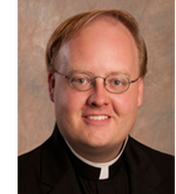|
We have spent some time during the Lenten Season looking at one of the two Sacraments of Healing – namely, the Sacrament of Reconciliation – now it’s time to turn our attention to the second sacrament of healing, the Anointing of the Sick – sometimes called Extreme Unction or Last Rites. We will examine the sacrament first in light of the experience of human illness, then turn to Christ’s own concern for the sick and the scriptural roots of the sacrament prior to examining its celebration.
Illness and sickness are disturbing realities of the human condition. In the midst of illness we experience powerlessness, limitation and the finite nature of human existence and this gives us a glimpse into the reality of death. Sickness and illness can make us feel isolated from God and from others and, in some sense, even from ourselves, as we find the things that we are used to doing or able to do are not possible in the same way – even thinking itself can be difficult. The General Introduction to the ritual book, “The Pastoral Care of the Sick” which contains the anointing ritual, states, “suffering and illness have always been among the greatest problems that trouble the human spirit. Christians feel and experience pain as do all other people; yet their faith helps them to grasp more deeply the mystery of suffering and to bear pain with greater courage. From Christ’s words they know that sickness has meaning and value for their own salvation and for the salvation of the world. They also know that Christ, who during his life often visited and healed the sick, loves them in their illness” (General Introduction, #1). Perhaps some of the most familiar stories from the gospels are those which show us this concern and love that Christ has for the sick and His desire to help them and to heal them – we have only to think of the healing of the paralytic, the healing of the man born blind, etc., to see that a fundamental and significant part of Christ’s public ministry was the healing of the sick and a pastoral solicitude for them in their illness and pain. Those who are sick stand in deep need of God’s grace, lest they become discouraged or fall into despair or find their faith being weakened. At the same time, when one encounters Christ in the midst of the suffering due to illness, then the illness itself can help us to mature and to discern what is of true value and provoke a search and return to God on a deeper level. It is to accomplish this union of the suffering and experience of the sick to Christ that the sacrament comes into play – while there may be times when one does recover physically from their illness because of the sacrament even more importantly is this uniting of the suffering and ill person with Christ. The anointing of the sick “gives the grace of the Holy Spirit to those who are sick; by this grace the whole person is helped and saved, sustained by trust in God, and strengthened against the temptations of the evil one and against anxiety over death. Thus the sick person is able not only to bear suffering bravely, but also to fight against it. A return to physical health may follow the reception of this sacrament if it will be beneficial to the sick person’s salvation” (General Instruction, #6). This union which is brought about between the person in their illness and Christ Himself can be a great source of consolation and strength, as well as sanctifying the soul of the person who is ill. Christ’s love for the sick is so clear that He actually identifies Himself with the person who is sick, “I was sick and you visited me” as He says in St. Matthew’s Gospel. In our next article we examine some of the scriptural roots of the sacrament as well as the graces which flow from it. (This article is part of a series of articles on The Sacraments which will appear in the bulletin over the course of this year.) Comments are closed.
|
Fr. PeterArchives
June 2023
Categories |
Join us at MassSaturday at 4pm;
Sunday at 7:30am, 9:00am, 10:30am Daily Masses: Monday-Friday 6:30am Tuesday/Friday 8::00am (school days only) Saturdays 8:00am Sacrament of Reconciliation |
|


 RSS Feed
RSS Feed
